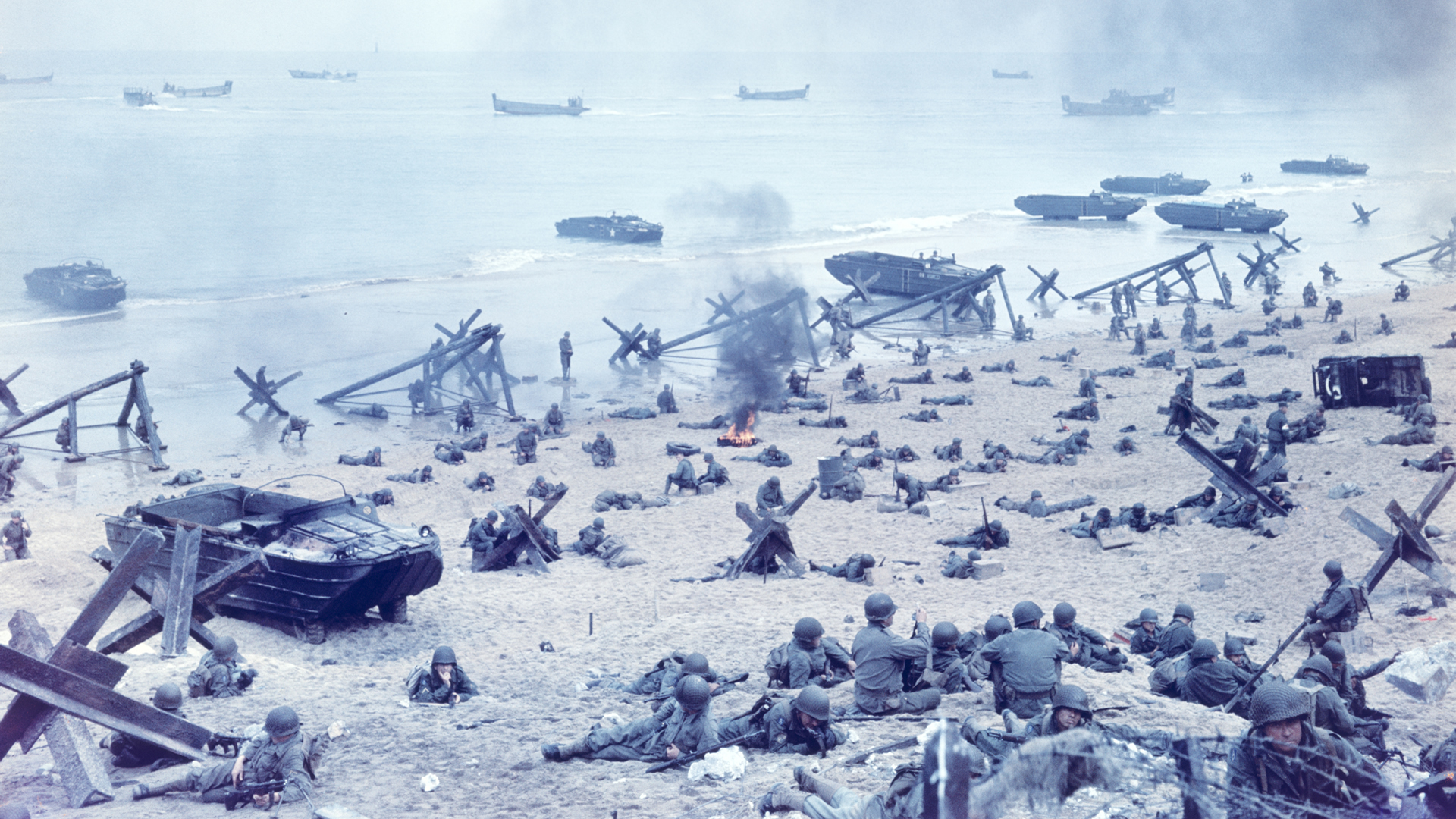1
Dear Mother,
Well here it is Sunday
again and I have taken time off
from work to drop a letter
to you. I hope this letter
will find you much better.
D-Day has come and gone
and now we are getting back
to normal work again. I think
the mails were held up for
the start of D-Day. But hope
by now my mail is getting
through to you. Irene said
she hadn't had a letter from
me for fifteen days but
now it was comeing through
again.
Had a letter from Harley
2
today. I guess the way he
writes, they are keeping him
busy also.
We have been haveing some
summer weather again and it
sure seems good to see the
sunshine again. I will be
glad to get back to the good old
U.S.A. where our climate is
in season and not have
summer one day and winter
the next.
I attended Sunday services
again today. Chaplain Sumnerlin
gave a very nice talk. I hope
by this time Luella has
given you the pictures of our
Chapel and the Chaplain.
I have received some pictures
I have taken over here
3
and they turned out very
good. I am haveing some reprints
made and will send you a
set as soon as they are
finished.
A few nights ago we had
a surprise for supper. It was
pineapple ice cream. Gosh
it sure tasted good, and then
the following morning we had
fresh fried eggs and real oranges.
That is another treat. About
two nights later they had
fresh sliced tomatoes for
supper. They really hit the
spot. You know how well
I like them to.
How was the Wedding? I
bet it was a big success.
I sure wished I could have
4
been there to it, but I guess
about the only wedding I will
attend is my own. I also
missed Cliff's. I was in New York
at the World's Fair at the time.
This time in England. I really
do a lot of traveling around.
I know you will understand
now why the mail hasn't been
comeing through to you, so please
don't worry about me. I want
you to be ok by the time I
arrive home. I sure hope it
won't be long. From all the
news reports the boys over
in France are doing ok. So
maybe we will all be home
sooner than it is expected.
I was thinking today that
this is about the time we
5
always held the family reunion.
Maybe we can all be together
next year for it.
Irene has her vacation
comeing in July and says she
doesn't think she will do
very much. I sure wish I
could be there to have a
vacation with her.
Had a V mail letter from
Pearl yesterday. She said she
had written to you.
Well mother this is about
all for tonight. I hope you and
the new daughter-in-law are
getting along ok. I know Audrey
will be a lot of company to you.
Take care of yourself and please
don't worry.
Love Ralph.
The next letter will be posted on June 20th.
Background Information (and comments):
- After Glenn & Audrey married on June 16th, they lived with Ralph's parents in the back of the farmhouse until 1963.
- The first Brown Reunion took place on Sept. 12, 1917. There were yearly reunions through 1941 with the 25th annual reunion taking place at the Adrian Fairgrounds on June 15, 1941. For the next 7 years there was no reunion due to World War II. The 26th reunion was held at Ellis Park in Blissfield Michigan on Aug. 15, 1948. The 95th Annual Brown Reunion is scheduled for Aug. 27, 2017 at Ellis Park in Blissfield.
- For anyone interested in some additional Brown Reunion history, there are documents available on the Brown Reunion facebook page.

















